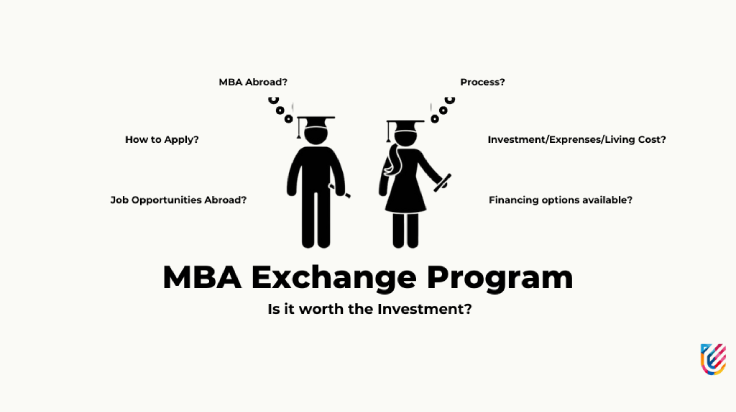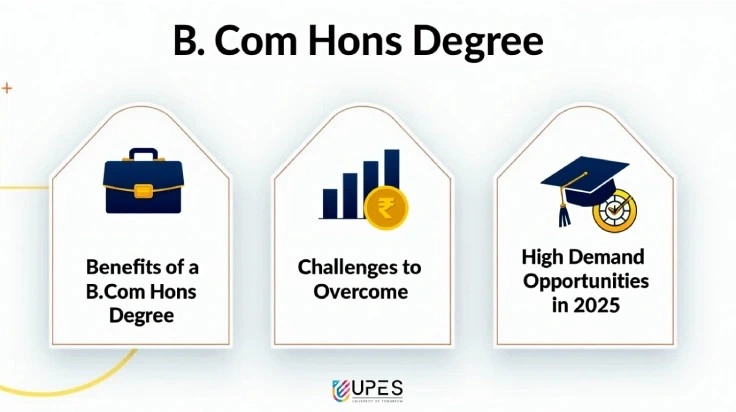Is an MBA after Engineering a Good Career Option?
- UPES Editorial Team
- Published 13/12/2024

Table of Contents:
Can I do an MBA after Engineering?
What is Eligibility for MBA?
Why Should We do an MBA after Engineering?
Factors to Consider before Pursuing MBA
Which MBA Program to Choose
Which MBA Specialization is Good for Which B.Tech?
Career Opportunities Post-MBA for Engineers
Potential Salary Hikes Post-MBA
Is an MBA after Engineering a Good Career Choice?
Key Aspects to Consider Before Choosing an MBA Program
Pursuing an MBA after completing a B. Tech degree has become a popular choice among engineering graduates. This career path blends technical expertise with business acumen, opening doors to diverse opportunities across industries. However, is an MBA after engineering the right step for you? Let’s explore the factors to consider, potential salary hikes, time investment, and which MBA specializations align best with different engineering backgrounds.
Can I do an MBA after Engineering?
The answer to this question is YES, A BIG YES! While an engineering degree simply gives students with fundamental technical information about a specific area and some tools to tackle any problem that arises, an MBA works as a springboard, propelling one's understanding toward managerial talents. This combination of degrees can open up a world of possibilities!
Become future-ready with our Business programs
Know MoreWhat is Eligibility for MBA?
Let us look into what makes you eligible to apply for MBA. Read below:
- Technology with any specialization from a recognized institution or university, with a minimum score of 45-55%.
- The minimum cut-off percentile for any management entrance test, such as CAT/XAT/MAT/CMAT, etc.
- NRIs and foreigners may be required to pass the GMAT with a minimum score.
- Certain MBA degrees, such as Executive MBAs, may require students to have at least two years of work experience in the relevant field of study following graduation.
Why Should We do an MBA after Engineering?
An MBA enhances your soft and hard skills, including:
- Leadership and Team Management: Essential for guiding teams effectively.
- Strategic Thinking: Equips you to plan and execute long-term strategies.
- Financial Acumen: Helps in understanding financial statements, budgeting, and business valuation.
- Networking: Provides access to a vast alumni network and industry contacts.
- Communication Skills: Strengthens your ability to present ideas and manage stakeholders.
Factors to Consider before Pursuing MBA
Pursuing an MBA is a career change. You need to scrutinize your decision before enrolling in. Here are some factors to keep in mind:
- Career Goals: Before enrolling in an MBA program, assess your long-term career aspirations. Do you see yourself transitioning from technical roles to management, leadership, or entrepreneurial positions? An MBA provides skills that help engineers move from hands-on roles to strategic decision-making positions.
- Industry Requirements: Evaluate whether your desired industry values an MBA. Industries like consulting, finance, product management, and technology leadership often prefer candidates with an MBA.
- Work Experience: Many top MBA programs prefer applicants with at least 2-3 years of work experience. This background helps in understanding real-world business challenges and applying theoretical knowledge practically.
- Financial Investment: MBA programs can be costly, especially at renowned institutions. Weigh the costs against potential career growth and salary benefits to ensure it’s a financially sound decision.
For your choice to be right, make sure to research the above well and then choose instead of following the crowd. Remember, at the end of the day, decision should be yours and not someone else’s.
Which MBA Program to Choose?
An MBA program can last between 1-2 years, depending on whether you choose a full-time, part-time, or executive MBA. Here’s how to evaluate the time investment:
- 1-Year MBA Programs: Ideal for those with significant work experience who want to fast-track their career transition. These are intensive but provide quicker returns.
- 2-Year MBA Programs: Suitable for fresh graduates or those with minimal work experience. They provide a more comprehensive learning experience and networking opportunities.
- Executive MBA: Tailored for working professionals with 5-10 years of experience. Classes are often on weekends or evenings, allowing candidates to balance work and study.
Depending on your work experience, time in hand, and career goals, you can choose which programs suits you best.
Which MBA Specialization is Good for Which B.Tech?
Choosing the right MBA specialization depends on your engineering background and career aspirations. Here’s a breakdown:
B.Tech in Computer Science/IT:
- MBA Specializations: Technology Management, Information Systems, Data Analytics, Product Management.
- Why: These fields leverage your technical knowledge in tech-driven businesses or roles that require product and project management skills.
B.Tech in Mechanical Engineering:
- MBA Specializations: Operations Management, Supply Chain Management, Industrial Management.
- Why: Mechanical engineers often excel in manufacturing, logistics, and operations, making these specializations a natural extension of their skills.
B.Tech in Electrical/Electronics Engineering:
- MBA Specializations: Energy Management, Technology Management, Operations.
- Why: These fields are a fit for those aiming for leadership roles in energy, utilities, and tech firms.
B.Tech in Civil Engineering:
- MBA Specializations: Project Management, Real Estate Management, Infrastructure Management.
- Why: Civil engineers can leverage these specializations to move into strategic roles overseeing large-scale infrastructure projects or real estate developments.
B.Tech in Chemical Engineering:
- MBA Specializations: Operations, Supply Chain Management, Environmental Management.
- Why: Chemical engineers often benefit from an MBA when pursuing roles in manufacturing, supply chain management, and environmental sector.
You can choose a specialisation from the above array of specialisations.
Career Opportunities Post-MBA for Engineers
Combining engineering and an MBA offers diverse career paths:
- Consulting: Engineers with an MBA are highly valued in consulting firms for their problem-solving skills and technical insights.
- Product Management: Overseeing the development and lifecycle of a product, from strategy to execution.
- Project Management: Leading projects that require technical know-how combined with managerial capabilities.
- Entrepreneurship: The blend of technical skills and business knowledge positions engineers well to start their own ventures.
- Leadership Roles: Many engineers with an MBA eventually rise to senior management positions like CTO, CEO, or operations head.
An MBA is a good way to escalate your career in a shorter period of time.
Potential Salary Hikes Post-MBA
One of the biggest reasons engineers pursue an MBA is the potential for a significant salary hike. According to industry reports:
- Pre-MBA Salaries for engineers typically range from INR 3-8 lakhs per annum, depending on the job role and company.
- Post-MBA Salaries can surge to INR 10-25 lakhs per annum or higher, especially for graduates from top B-schools like IIMs, ISB, and top global institutions.
- Leadership Roles such as project managers, product managers, and consultants often come with attractive compensation packages that include bonuses and performance incentives.
Is an MBA after Engineering a Good Career Choice?
Yes, pursuing an MBA after engineering can be a great career choice. It combines technical expertise with business acumen, opening doors to management roles, consulting, and leadership positions. Engineers with an MBA often see significant salary hikes and career growth, moving from technical positions to strategic and managerial roles. However, it's essential to consider factors like career goals, financial investment, and the specific MBA specialization that aligns with your engineering background to maximize the benefits.
Key Aspects to Consider Before Choosing an MBA Program
Like everything, an MBA also has pros and cone. But if you have truly made up your mind to pursue it, make sure to keep a few determinants in minds. Read below:
- Accreditation: Ensure the MBA program is accredited and recognized globally.
- Specialization Alignment: Choose a program that offers the specialization you need.
- Alumni Success: Research the success stories of alumni to gauge the program's impact.
- ROI (Return on Investment): Calculate potential earnings post-MBA against the program cost.
- Location: Where you study can influence job opportunities and salary post-MBA.

Our counsellors are just a click away.
Conclusion
Pursuing an MBA after engineering can be a game-changer, especially for those looking to move into management roles or explore new industries. While it requires significant time and financial investment, the career growth, salary hikes, and skill enhancement make it worth considering. Evaluate your career goals, the industry landscape, and your personal aspirations to decide if this path aligns with your ambitions.
UPES Editorial Team
Written by the UPES Editorial Team
UPES Admission Enquiry
Subscribe to UPES Blogs
Join our community for exclusive stories, insights, and updates
By clicking the "Subscribe" button, I agree and accept the privacy policy of UPES.


















































